Former VAF Aman Kaleem on the Intersection of Art + Technology
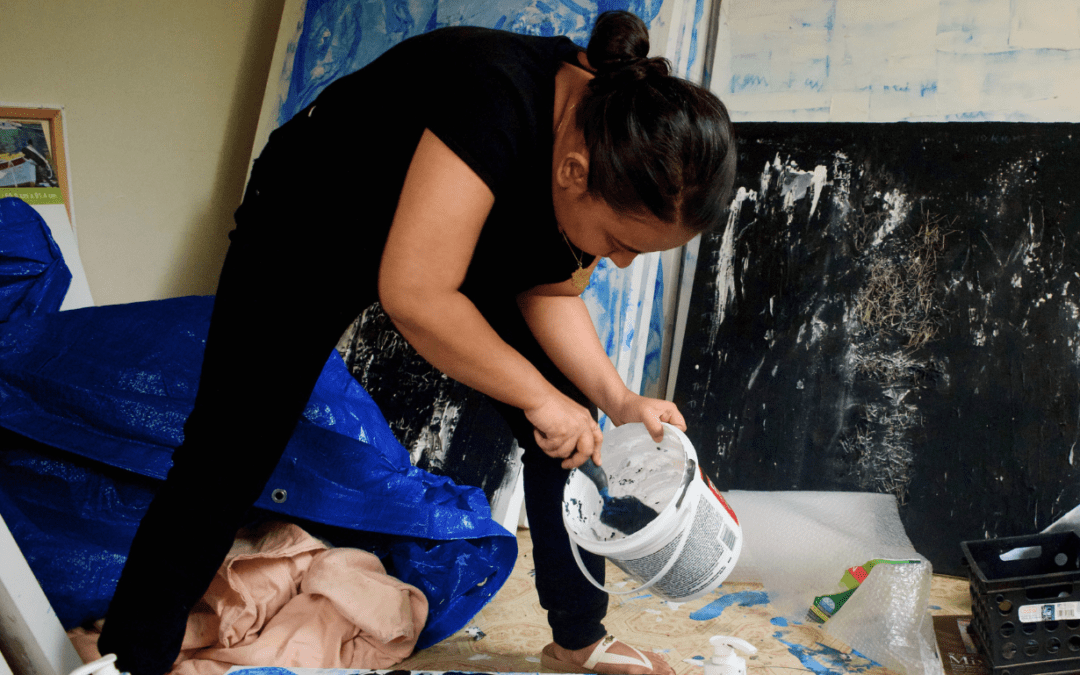

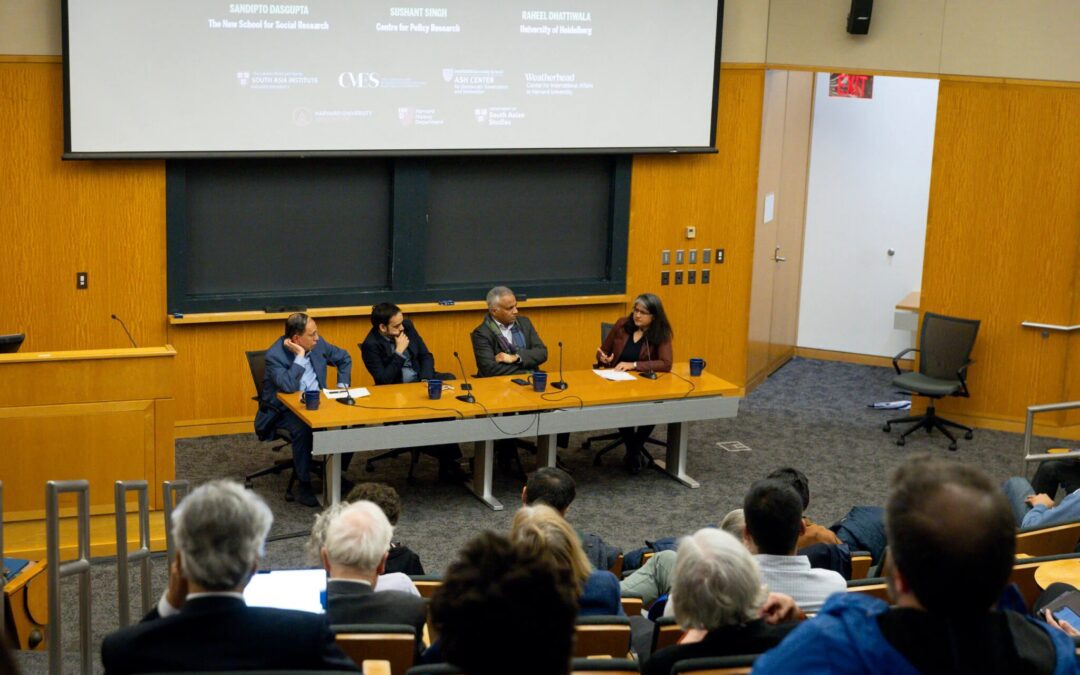
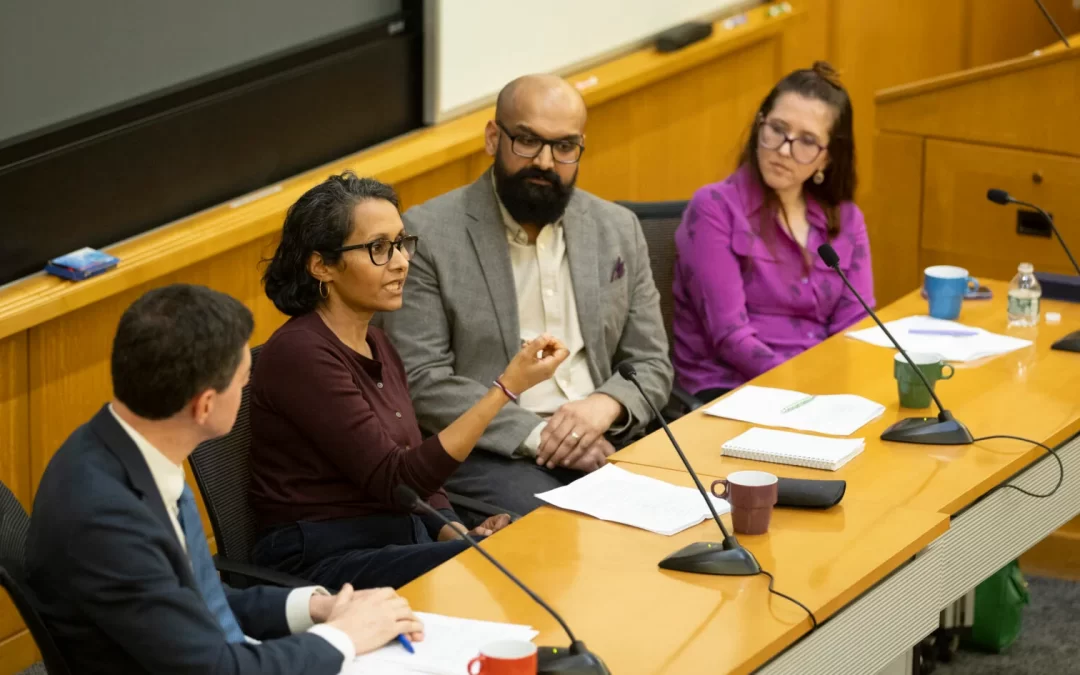
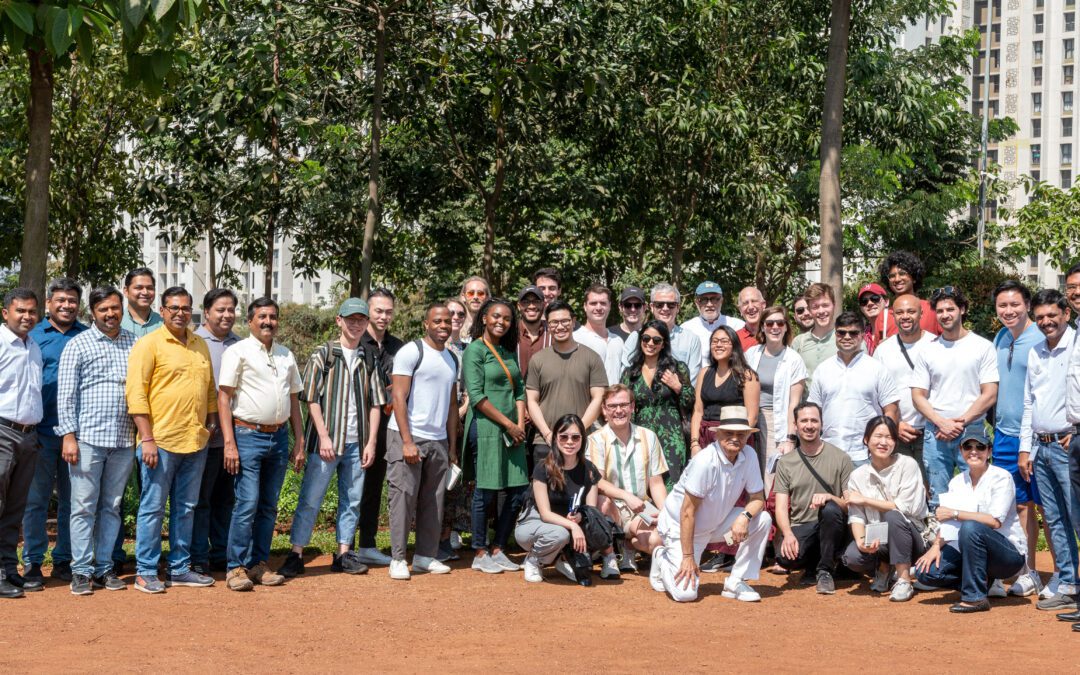
This February a group of Harvard Graduate School of Design students set out for Mumbai to explore urbanism in one of the world’s most crowded cities as part of the “Extreme Urbanism 9: Imagining Housing as Urban Form” course at the Graduate School of Design. Harish Krishnamoorthy (MAUD ’25) is an urban designer and architect from Bengaluru, India is a student in and teaching assistant for the studio, led by Rahul Mehrotra, John T. Dunlop Professor in Housing and Urbanization at the Harvard Graduate School of Design. Harish kept a travelogue of his experience, which he shares with the Mittal Institute below.
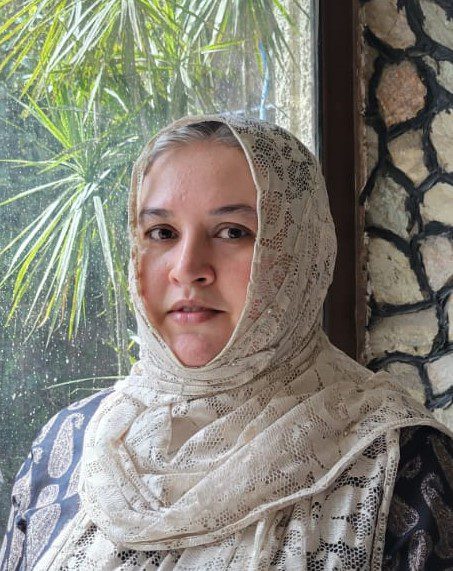
The Mittal Institute’s Fulbright Fellow 2024, Sarah Umer, comes to Cambridge from the University of the Punjab Lahore, where she is an associate professor in the College of Art and Design. Her research includes the study of art, ancient civilizations, and religions, predominantly in the South Asian region. We spoke to Sarah about her previous research and her research plans while in residence at LMSAI.
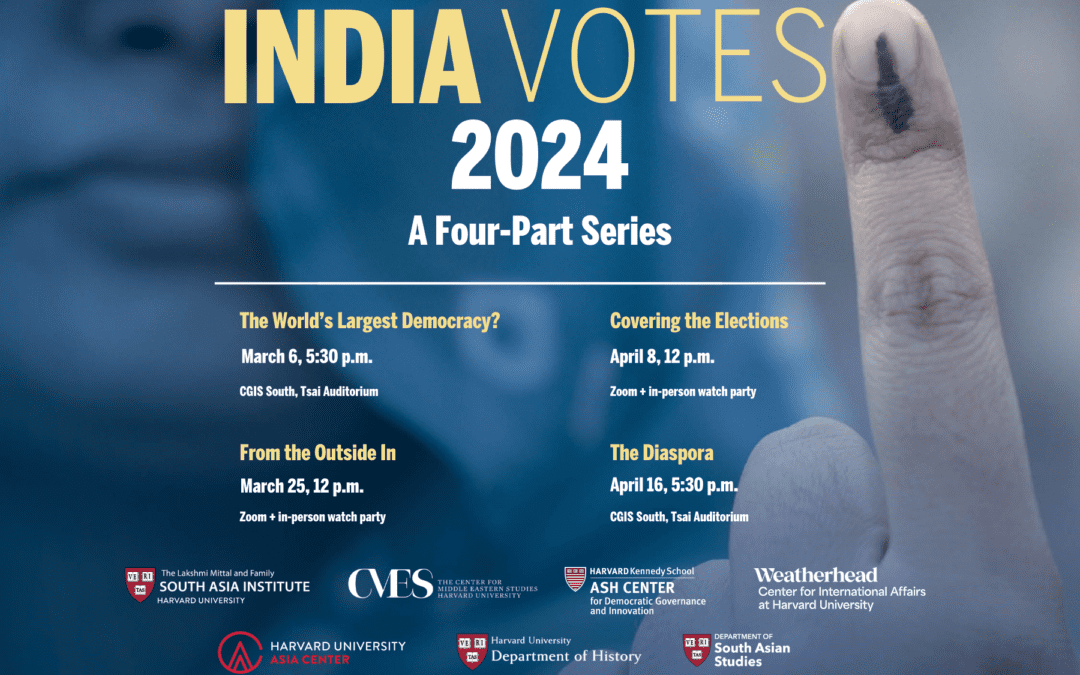
2024 is a significant election year globally with more voters than ever before heading to the polls. India will hold the largest election of them all and is one of several South Asian countries to have national votes this year. This four-part series – led by Harvard Professors Arunabh Ghosh, Maya Jasanoff and Vatsal Naresh – will feature cutting-edge scholars across the social sciences and media who will come together over the next two months to provoke discussions about democracy, the press, and diasporic politics that resonate with parallel trends in the U.S., Asia, and globally. We spoke with the three event conveners for more on the ideation of the series, and what we can expect from the discussion.
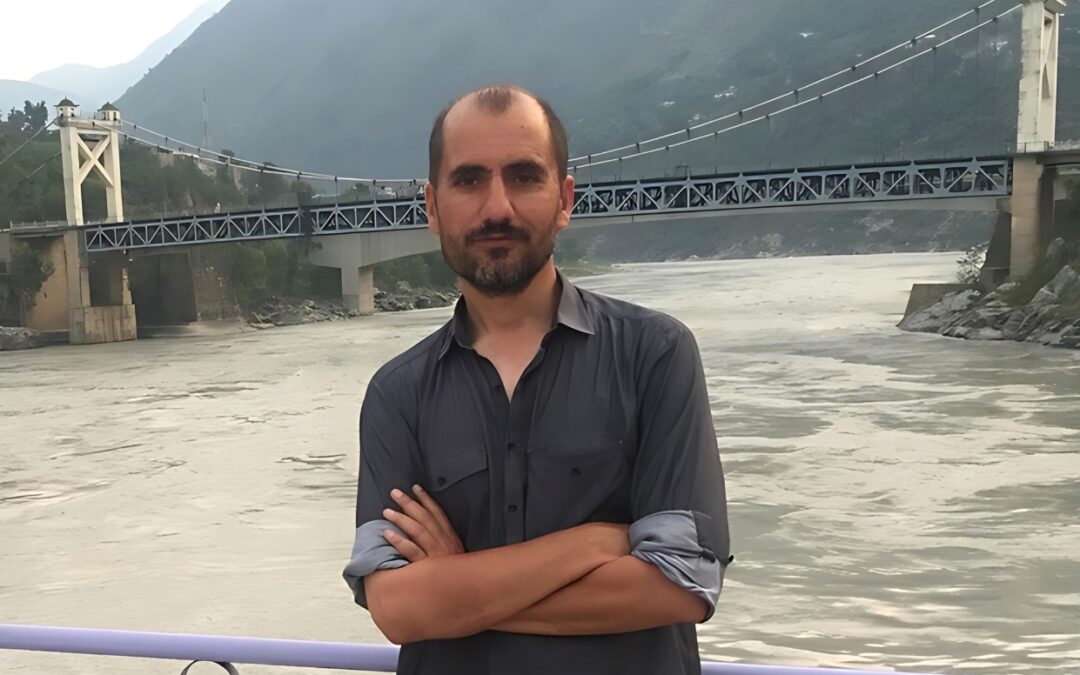
The Mittal Institute’s Syed Babar Ali Fellow, Muhammad Imran Mehsud comes to Cambridge from Hazara University Mansehra, Pakistan, where he is an Assistant Professor of International Relations. He is an expert on South Asian transboundary hydropolitics and his research project at the Mittal Institute examines the effectiveness of the Indus Waters Treaty of 1960 in settling contemporary transboundary water issues between India and Pakistan. We spoke with Imran about his research, and his plans for his time at Harvard.

This academic year, there are two new Afghan student groups on campus: the Afghanistan Caucus at Harvard Kennedy School and the Harvard Afghan Students’ Association at Harvard College. The Mittal Institute spoke with Sal Parsa, co-founder of the Afghanistan Caucus, about their inaugural event on February 20 and further plans to foster a sense of unity and purpose among Afghan students and alumni.
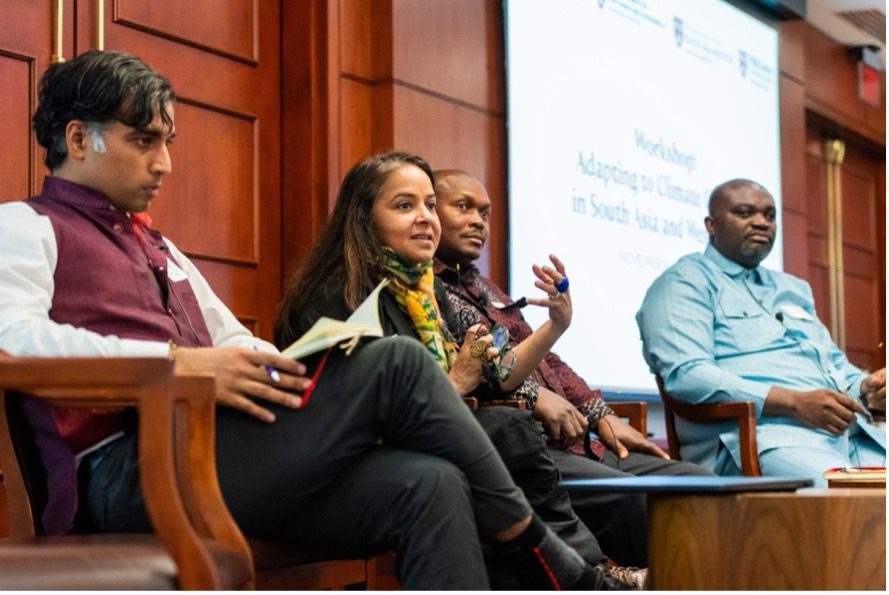
Sabina Faiz Rashid is a medical anthropologist and currently Professor and Chair of Health and Poverty at BRAC James P Grant School of Public Health in Dhaka, Bangladesh. She is also the principal in-region investigator of Mittal Institute’s CLIMATE ADAPTATION IN SOUTH ASIA project, an interdisciplinary project that seeks to advance climate adaptation research and implementation at the household, community, state and federal levels in South Asia, particularly in the context of climate-driven migration.
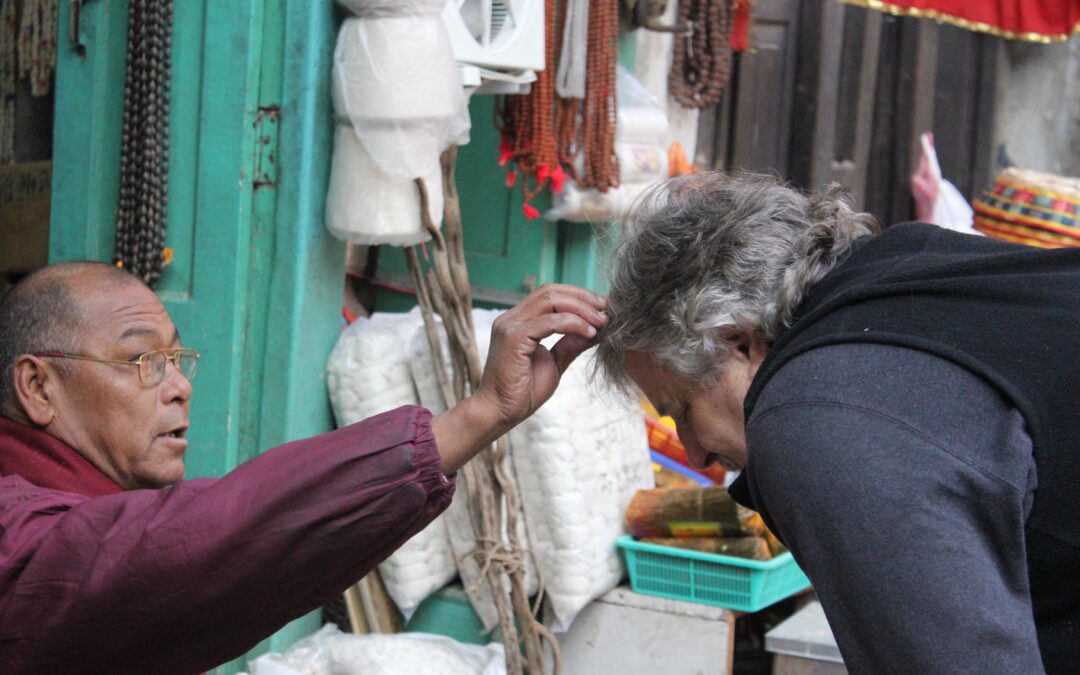
The Harvard Buddhist Studies Forum launched its spring semester events series with a February 7 talk by Todd Lewis, Distinguished Professor of Arts and Humanities at the College of the Holy Cross and Research Associate in Harvard’s Department of Sanskrit and Indian Studies. His talk, co-sponsored by LMSAI, explored “Reconfiguration and Revival: Newar Buddhist Traditions in the Kathmandu Valley (and Beyond).” We spoke with Todd to learn more about the motivations behind his research on South Asian religions, and what society can glean from their teachings

“A solution that can’t be applied,” says Professor Richard Cash, Senior Lecturer on Global Health at the Harvard Chan School of Public Health and LMSAI Steering Committee member, “is really no solution at all.” He shares more on his cholera dehydration life-saving solution that he and his colleagues first developed in Bangladesh — a solution that is credited with saving tens of millions of lives worldwide. Their oral rehydration therapy (ORT) is a mix of salt, sugar, and water and has helped patients return to their hydrated state as quickly as they had sickened.

The annual student-led India Conference at Harvard returns to campus for its 21st year on February 17 and 18, with experts from various sectors including business, economy and culture offering insight into India’s current landscape and future. We spoke to two of the four co-organizers, Ananya Chhaochharia (Harvard Kennedy School) and Ishaan Poddar (Harvard Business School) to understand the goals of the conference, and unpack this year’s theme, “India Rising.”